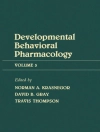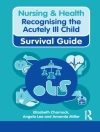In ‘What a Young Woman Ought to Know, ‘ Mary Wood-Allen presents a pioneering guide that addresses the complex realities of womanhood in the late 19th century. Written with clarity and compassion, the book blends meticulous research with a conversational tone, making it accessible for young readers. The text navigates themes of health, relationships, and moral development, challenging the societal norms of its time and advocating for the empowerment of women through knowledge. Its literary style reflects the didactic approach prevalent in Victorian literature, aiming to inform and uplift while emphasizing personal agency amidst social constraints. Mary Wood-Allen was a prominent physician and a dedicated advocate for women’s rights. Her background in medicine and her commitment to social reform deeply informed her writing. Wood-Allen’s experiences as a female practitioner in a predominantly male field shaped her perspective, leading her to emphasize the importance of education, self-awareness, and autonomy in her works. Through her endeavors, she sought to provide young women with the tools needed to navigate the challenges of their era. This thought-provoking book is highly recommended for those interested in the intersection of gender, health, and education. It serves not only as a historical document but also as a timeless call for empowerment and self-discovery. Readers will find in Wood-Allen’s work a source of inspiration and a reflection on the enduring relevance of her empowering message.
Circa l’autore
Mary Wood-Allen, M.D. (1841–1908), emerges as a significant figure in the nineteenth-century social purity movement, especially recognized for her contributions to the advancement of women’s health education. A physician by trade, she channeled her expertise into the realm of literature, aiming to provide didactic guidance for young females of the era. Her most influential work, ‘What a Young Woman Ought to Know’, belongs to the ‘Self and Sex Series, ‘ which sought to enlighten women on matters of sexuality, reproductive health, and moral conduct, a subject often obscured by the societal norms of her time. Dr. Wood-Allen’s approach in the book is emblematic of her broader literary style, which combines medical knowledge with moral instruction, a fusion meant not just to inform but to inculcate values in line with the Victorian ideals of purity and self-control. Her contributions extend beyond just her writings; she served as the National Superintendent of the Purity department of the Women’s Christian Temperance Union, reinforcing her commitment to societal reform and the upliftment of women’s status. Although her work is very much a product of its time, Dr. Wood-Allen’s legacy persists in the foundations she laid for future discourse on women’s health and sexuality.












